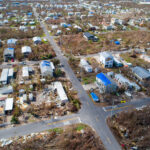The new H1N1 virus shows no signs of sustained person-to-person spread outside of North America and so has not yet tipped over into a pandemic, a top World Health Organization official said Monday.
Dr. Keiji Fukuda, acting WHO assistant director-general, also told a news briefing it was too early to say whether the swine flu virus would cause a pandemic. “We remain at phase 5,” Fukuda said, referring to the agency’s second-highest pandemic alert level. “It is still a confusing situation.”
WHO said its laboratories have confirmed 4,379 infections with the new strain. But the worst impact is still in North America, with 60 deaths. The United States alone has 2,600 cases.
“We know that we are seeing things change on an almost daily basis,” Fukuda said. “We are evaluating the clinical features; we are evaluating the epidemiology and the spread. We will continue to evaluate what is the impact on both people and countries.”
In Mexico, millions of children, many of them wearing surgical masks and clutching hand sanitizer, went back to classes for the first time in two weeks. Schools throughout Mexico were scrubbed from floor to ceiling last week and the 20 million students who returned on Monday were told to follow strict hygiene rules. “If everyone respects them, we’re going to have a safe and healthy return,” Education Minister Alonso Lujambio said.
ITCHY MASKS
Although there is no evidence to show masks protect people who have not been infected, many children wore them. “I know it’s to protect us but the mask is very uncomfortable. It makes me itchy,” said Pamela, a 10-year-old at a school in the capital.
Mexican health officials said the death toll there has risen to 56 as results come in of tests on people who died in recent weeks. Mexico has had a total of 2,059 cases of the swine flu distributed throughout all but three of the country’s 32 states, Health Minister Jose Angel Cordova said.
An international team reported the virus appears to act like a pandemic strain, being more easily passed along than the regular seasonal flu.
Neil Ferguson of Imperial College London and colleagues reported in the journal Science that as many as 23,000 Mexicans were likely infected with the swine flu virus.
They also found evidence to support the theory that the outbreak originated in the village of La Gloria in the state of Veracruz, which had been the subject of intense speculation.
CHINESE QUARANTINE
Chinese authorities were searching for 150 people who took the same flights as mainland China’s first confirmed case of the new flu, state media said.
State television and the Xinhau news agency said the government had tracked down and quarantined about 150 people who flew with the 30-year-old man, first from Tokyo to Beijing and then from Beijing to the Sichuan provincial capital, Chengdu. But another 150 or so were unaccounted for. The patient himself, a Chinese student in the U.S. state of Missouri, was doing well.
Thai scientists who infected piglets with the new virus said it caused flu-like symptoms in the animals before disappearing, just like many of the human cases.
Europeans were relaxed about the outbreaks. Italian farm group Coldiretti said that while one in 10 Italians had stopped eating pork despite reassurances the virus is not food-borne, 12 percent were actually buying more pork because prices had fallen since the outbreak.
“They say it’s better to prevent than cure but I think the reaction has been alarmist. That is more the fault of the WHO (than the government),” said Sami Husein, 32, a Madrid engineer.
“There have been fewer deaths than for any normal flu, so for now I don’t understand how it could be a major problem.”
The U.S.-based People for the Ethical Treatment of Animals said it had asked the CDC to release any evidence that would show the outbreak originated on a factory farm.
(Reporting by Alistair Bell and Adriana Barrera in Mexico, Michael Kahn in London, Ben Blanchard in Beijing; Writing by Maggie Fox; Editing by Cynthia Osterman)
Was this article valuable?
Here are more articles you may enjoy.


 California Sees Two More Property Insurers Withdraw From Market
California Sees Two More Property Insurers Withdraw From Market  Why New York’s Attorney General Objects to Trump’s Bond Insurer
Why New York’s Attorney General Objects to Trump’s Bond Insurer  4,800 Claims Handled by Unlicensed Adjusters in Florida After Irma, Lawsuit Says
4,800 Claims Handled by Unlicensed Adjusters in Florida After Irma, Lawsuit Says  Dubai Floods Expose Weaknesses to a Rapidly Changing Climate
Dubai Floods Expose Weaknesses to a Rapidly Changing Climate 

